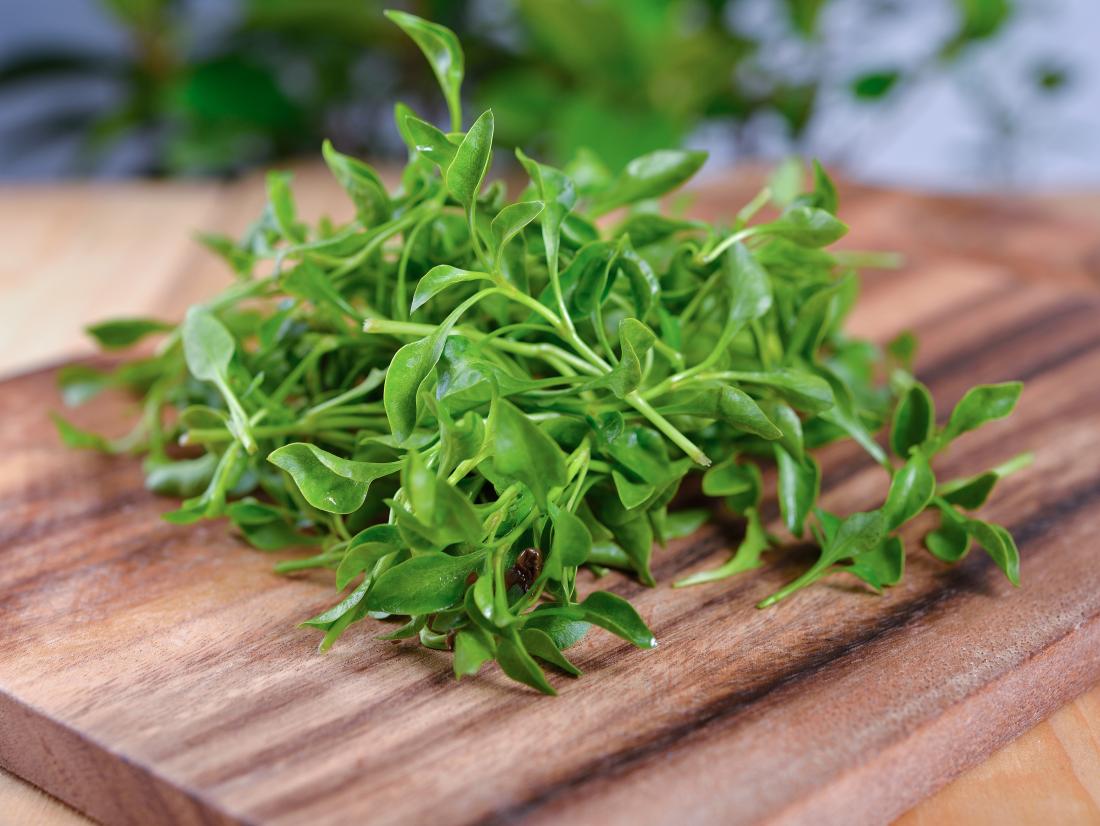Do you like watercress and want to find out how many calories they provide? Discover the calories they contain per 100 grams. And know what they are and if they get fat.

Among the different properties of watercress, we find that it is a food that stands out for being purifying and diuretic, virtues that it also shares with the artichoke.
For this reason, it is not only a food that must be present in our diet in a balanced way, but it is also interesting in following a slimming diet to lose weight.
It contains mineral salts (such as calcium, potassium or iron), and also vitamins. In addition, it stands out for its high fiber content. Find out below how many calories are in watercress.
Calories from watercress
As you surely know, depending on the amount of watercress we consume, they will contribute more or less calories. The same happens with the foods with which we accompany them, since it is not the same to eat them with a homemade broth than to add them to a delicious omelette.
In any case, how many calories do 100 grams of watercress provide? 100 grams of watercress provide only 11 calories.
On the other hand, depending on how we told you about the foods with which we consume them, their caloric intake will vary. To give you an idea, here are some demonstrative examples:
- Watercress soup: 190 calories.
- Watercress and pea cream: 220 calories.
- Watercress salad: 125 calories.
- Watercress sandwiches: 500 calories.
Are watercress fattening?
It is clear that if you are currently following a weight loss diet in order to lose weight, you will be concerned to discover if a certain food will help you precisely when it comes to losing weight, or however it will make you fat.
In the case of watercress, you must be totally calm , since it is more than evident that it is an extremely healthy plant, low in fat and full of benefits, so its consumption is recommended in any diet, either weight loss or not.
Nutritional information for watercress
In addition to knowing how many calories watercress provide us, don’t you think it is also useful to inquire a little more about its nutritional contribution?
100 grams of watercress provide:
- Energy: 11 calories.
- Carbohydrates: 2.03 gr.
- Proteins: 1.60 gr.
- Fats: 0.30 gr.
- Water: 94.60 gr.
- Fiber: 1.47 gr.
- Vitamins: vitamin A (816.60 ug), B1 (0.09 mg), B2 (0.17 mg), B3 (0.73 mg), B6 (0.23 mg), B9 (214 ug), vitamin C (96 mg).
- Minerals: potassium (276 mg), calcium (180 mg), magnesium (34 mg), iodine (12 mg), sodium (12 mg), iron (3.10 mg), selenium (0.90 mg).
What are watercress?
The cress, also commonly known by the names of cress or Creson, consist of a green leafy plants belonging to the family of the Cruciferae, the same as that for example also belong to other plants or vegetables very consumed and popular, as is the case of arugula or broccoli.
Their origin must be found in both Europe and Asia, and it is very common to find them growing wild in areas of land near water.
What qualities do watercress bring?
On the one hand we must highlight, as we have seen previously in the section dedicated to this, its interesting nutritional qualities, especially its high content of fiber, vegetable protein, vitamins (especially vitamin A, C, D, E and group B), and minerals (such as magnesium, iodine, potassium, iron, zinc, and calcium).
On the other hand, when it comes to the benefits of watercress, we can summarize below which are its most important benefits:
- They help take care of the liver, improving its functioning and acting as hepatoprotectors (that is, they are useful to protect liver cells).
- They prevent the formation of stones in both the gallbladder and the kidneys.
- They are useful to prevent fluid retention, helping in turn to eliminate toxins and accumulated fluids.
- Ideal for combating the symptoms associated with both high uric acid levels and gout.
- Due to their richness in iron, they are useful in case of anemia.































